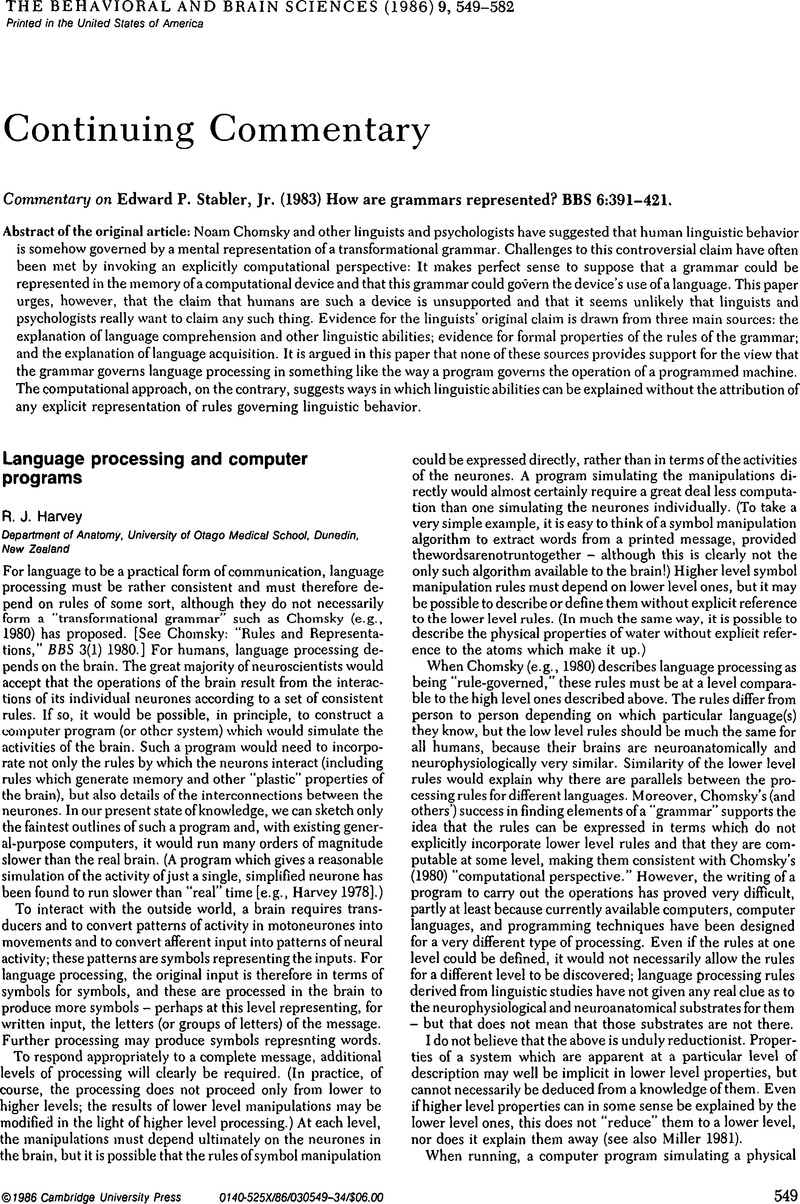No CrossRef data available.
Article contents
Computational models of language processing
Published online by Cambridge University Press: 04 February 2010
Abstract
An abstract is not available for this content so a preview has been provided. Please use the Get access link above for information on how to access this content.

- Type
- Author's Response
- Information
- Copyright
- Copyright © Cambridge University Press 1986
References
Chomsky, N. (1980) Rules and representations. Columbia University Press. [RJH]CrossRefGoogle Scholar
Cross, M. (1983) A few analogies with computing. Behavioral and Brain Sciences 6:407–8. [RJH]Google Scholar
Harnish, R. M. (1983) Computational commitment and physical realization. Behavioral and Brain Sciences 6:408–9. [rEPS]CrossRefGoogle Scholar
Harvey, R. J. (1978) Patterns of output firing generated by a many-input neuronal model for different parameters and patterns of synaptic drive. Brain Research 150:259–76. [RJH]CrossRefGoogle ScholarPubMed
Marr, D. (1982) Vision: A computational investigation into the human representation and processing of visual information. W. H. Freeman. [rEPS]Google Scholar
Miller, R. (1981) Meaning and purpose in the intact brain. Oxford University Press. [RJH]Google Scholar
Stabler, E. P. (1983) How are grammars represented? Behavioral and Brain Sciences 6:391–421. [rEPS, RJH]Google Scholar
Stabler, E. P. (1984) Berwick and Weinberg on linguistics and computational psychology. Cognition 17:155–79. [rEPS]CrossRefGoogle ScholarPubMed


